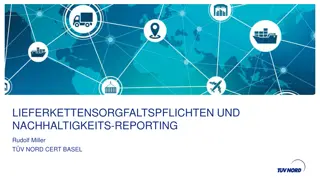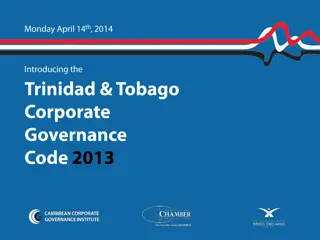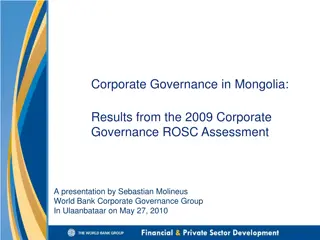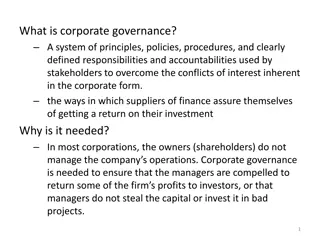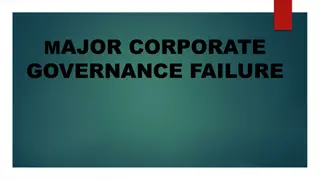Corporate Governance and LPO_ Aligning Objectives and Accountability
The presentation titled "Corporate Governance and LPO: Aligning Objectives and Accountability" by LDM Global highlights the importance of integrating strong corporate governance practices within Legal Process Outsourcing (LPO) partnerships. It outl
Download Presentation

Please find below an Image/Link to download the presentation.
The content on the website is provided AS IS for your information and personal use only. It may not be sold, licensed, or shared on other websites without obtaining consent from the author.If you encounter any issues during the download, it is possible that the publisher has removed the file from their server.
You are allowed to download the files provided on this website for personal or commercial use, subject to the condition that they are used lawfully. All files are the property of their respective owners.
The content on the website is provided AS IS for your information and personal use only. It may not be sold, licensed, or shared on other websites without obtaining consent from the author.
E N D
Presentation Transcript
Corporate Governance and LPO: Aligning Objectives and Accountability Presented by: LDM Global
Introduction to Corporate Governance in LPO Definition of Corporate Governance: Framework of rules, practices, and processes by which a company is directed and controlled. Role of LPO (Legal Process Outsourcing): Supporting legal departments and law firms by handling legal tasks offshore. Importance of Alignment: Ensures strategic, ethical, and operational alignment between corporations and their LPO partners.
Key Objectives of Corporate Governance in LPO Transparency: Clear communication on processes, deliverables, and performance metrics. Accountability: Defined roles and responsibilities between onshore and offshore teams. Compliance: Adherence to legal, regulatory, and data protection standards. Risk Management: Identifying and mitigating potential legal and operational risks.
Aligning LPO Strategy with Corporate Governance Vendor Selection: Choosing LPO partners with strong governance practices. SLA & KPIs: Establishing measurable service level agreements and performance indicators. Ethical Standards: Promoting integrity, confidentiality, and anti- corruption measures. Regular Audits: Periodic evaluations to ensure alignment with corporate objectives.
Enhancing Accountability and Long-Term Success Joint Governance Committees: Collaborative decision-making between client and LPO. Continuous Improvement: Regular training, feedback loops, and process optimization. Technology Integration: Leveraging tools for secure communication, workflow tracking, and performance monitoring. Conclusion: Effective governance in LPO leads to sustainable partnerships and enhanced legal service delivery.


